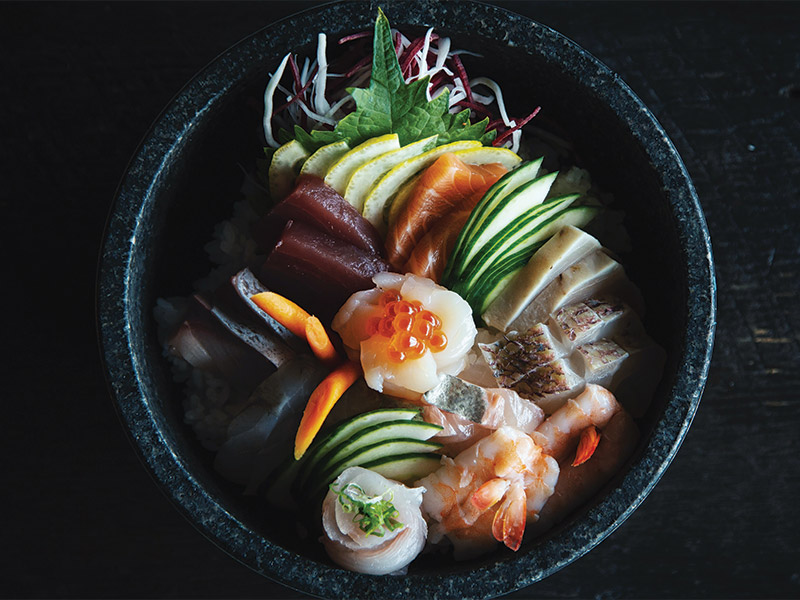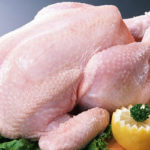For a truly safe pregnancy, it’s crucial for expectant mothers to be aware of certain restrictions, especially during the first trimester. This is because the fetus is still small and fragile, and the mother’s body is undergoing significant changes. Knowing what to avoid during pregnancy can help ensure a healthy and successful pregnancy.
In addition to knowing what to eat, pregnant women should also be aware of certain food restrictions. For detailed information, refer to the article on [Topic Name] to ensure the well-being of both mother and child.
1 Avoid Raw Seafood

Seafood is a great source of vitamins and minerals such as healthy fats, zinc, iron, and calcium. However, it’s important to avoid eating raw seafood as it may contain harmful bacteria and viruses that can affect the health of both mother and baby. Pregnant women should only consume seafood that has been thoroughly cooked.
Additionally, pregnant women should avoid consuming raw fish, as it may contain high levels of mercury.
It’s recommended to vary your seafood choices to ensure a diverse range of nutrients. Limit your consumption to no more than 340g of fish per week.
2 Avoid Taking Medication

During pregnancy, it’s best to minimize your intake of medication. All medications have potential side effects that could impact the development of the fetus. Therefore, pregnant women should not take any medication without consulting a doctor first.
If you’re feeling unwell, it’s important to see a doctor for a proper diagnosis and prescription.
To avoid any risks to the fetus and yourself, educate yourself about common medications to take during pregnancy and adjust your medication intake and diet accordingly.
3 Avoid Nail Polish

Research suggests that phthalates, a component of nail polish, can impact a child’s IQ. Therefore, it’s best to avoid painting your nails during pregnancy. Additionally, the strong odors from nail polish and other chemicals used in hair salons can be harmful to pregnant women.
4 Avoid Soaking in a Bathtub or Sauna

While a warm bath or sauna may be relaxing, the high temperatures can be dangerous for pregnant women. In fact, studies show that soaking in a hot tub or using a sauna during the first trimester can double the risk of miscarriage.
For further guidance: [Reference Link]
5 Avoid Alcohol and Caffeine

One of the important restrictions during pregnancy is limiting the consumption of caffeinated beverages. Caffeine can cross the placenta and increase the baby’s heart rate. Research suggests that while one or two cups of coffee per day may be safe, it’s best to reduce your coffee intake during pregnancy.
Alcohol consumption during pregnancy can have severe consequences on the fetus. Women who drink alcohol while pregnant increase the risk of their child being born with Fetal Alcohol Spectrum Disorder (FAS). Symptoms of FAS include:
-
Low birth weight
-
Learning disabilities
-
Behavioral issues
-
Delayed growth and development
Even small amounts of alcohol can be detrimental. If you need support to stop drinking during pregnancy, speak to your doctor as soon as possible. The earlier you seek help, the healthier your baby will be.
It’s not just the mother who needs to be cautious; fathers also have a significant role to play. Fathers-to-be should educate themselves on how to take care of their pregnant partners and the developing baby. For more information: [Reference Link]
These are the key restrictions for pregnant women to ensure a healthy pregnancy for both mother and child. Keep these tips in mind to take care of yourself and support the overall development of your baby!
For further reading:
-
[Article 1]
-
[Article 2]
-
[Article 3]
Is Eating Fermented Rice Safe During Pregnancy? Expert Advice for Moms-to-Be
Pregnancy and diet go hand in hand, with expectant mothers often navigating a sea of dos and don’ts. One such culinary conundrum arises with “chao”, a beloved Vietnamese dish. So, the question on every pregnant woman’s mind is: Is it safe to indulge in this tasty treat during pregnancy, and if so, how should it be consumed? Let’s delve into this intriguing inquiry and uncover the facts!
Is It Safe for Pregnant Women to Eat Chicken and Duck Meat?
Meat, especially chicken and duck, has long been touted for its nutritional benefits. However, there are some old wives’ tales surrounding pregnant women’s consumption of these meats. Some believe that duck meat, for instance, can cause skin irritation and rashes in newborns. On the other hand, there’s a myth that pregnant women carrying boys who eat chicken will result in a smaller penis size for the fetus.





































